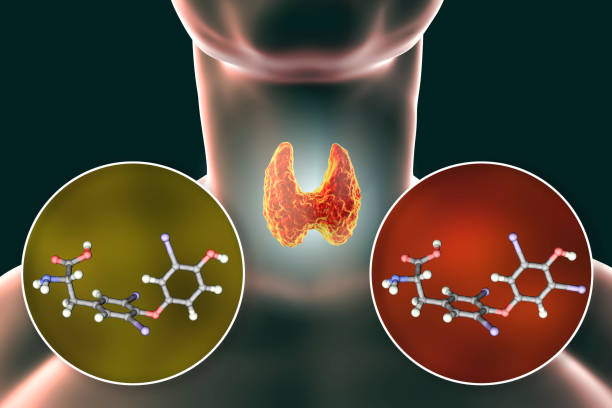You had the energy, desire, and strength as a young man in your early twenties to early thirties to pursue your passions and live a fulfilling life. However, as you get older, you may notice some unwanted changes. Perhaps you’re more tired than usual, have an unusually low sex drive, have gained a few pounds, and your mind is foggy. While you may believe that these are simply natural and unavoidable effects of aging, low testosterone levels are to blame in some cases.
Testosterone replacement therapy can increase men’s sexual activity, alertness, and energy. However, genuine safety concerns remain, prompting the question, “Is testosterone replacement therapy right for you?” This article will go over the symptoms of low testosterone as well as the advantages and disadvantages of using testosterone replacement therapy.
Do you have low testosterone?
Testosterone is the male hormone associated with strong muscles, intense sexual desire, and mental clarity. It also has an effect on your metabolism and the clarity of your skin. During puberty, testosterone production increases and then begins to decline after the age of 30. Testosterone helps men maintain several critical bodily functions, including:
- Sex drive
- Muscle mass and strength
- Sperm production
- Bone density
- Fat distribution
- Body hair
- Red-blood cell production
- Mind Health But as time goes on, this hormone decreases, which can make you feel bad and lower your quality of life.
Because testosterone is essential for many of man’s functions, its decrease can result in significant physical and emotional changes. As a result, millions of men around the world are turning to testosterone replacement therapy (TRT) to restore normal levels of the manly hormone.
What causes testosterone deficiency?
There are several factors that lead to low testosterone levels in the body. They include:
Natural aging: As you age, your testosterone levels start to decrease naturally. This generally begins at the age of 30.
Hypogonadism: Hypogonadism, a condition that causes low testosterone, maybe the cause in some cases. Hypogonadism occurs when the body does not produce adequate amounts of testosterone due to problems with the pituitary gland or testicles, which inhibit testosterone production.
Obesity: Excessive body fat inhibits the production of this hormone.
Medication: Some pain medications and steroids also affect the function of the pituitary gland.
Poor lifestyle choices: Certain lifestyle choices like smoking and alcoholism may also contribute to lower testosterone levels.
Symptoms of a testosterone deficiency
While the signs of a low testosterone level are generally obvious, they can also be subtle. The most common symptoms of low testosterone include:
Sexual function
Testosterone is the hormone responsible for sex drive and a high libido in men. So when the levels decline, a decrease in libido is also noted. The symptoms of a lowered level of testosterone concerning sexual function include:
- Erectile dysfunction or difficulty sustaining an erection
- Low sex drive
- Fewer spontaneous erections, such as during sleep
Physical changes
Low levels of testosterone can lead to several physical changes in the body, including:
- Fatigue or low body energy
- Facial hair and body hair loss or male pattern baldness
- Decreased muscle mass/strength
- Increased body fat
- Swelling or tenderness in the breast tissue
- Fragile bones
- Hot flashes
Cognitive function
In addition to physical changes, having low T can affect your mental and emotional state. This condition can lead to feelings of:
- Sadness or depression
- Lowered motivation and self-confidence.
- Difficulty concentrating
- Easily irritable
Sleep disturbances
Low testosterone levels can cause insomnia, lower energy levels, and other changes in your sleep pattern, like a decrease in the hours of restful sleep.
If you have symptoms of a testosterone deficiency and your blood tests confirm that low testosterone levels cause your symptoms, you should consider getting masculinizing hormone therapy.
What is testosterone replacement therapy?
Testosterone replacement therapy is a type of treatment that aims to restore your hormone levels to normal. Testosterone replacement therapy is currently only approved by the FDA for men who have male hypogonadism. To relieve symptoms, the lowest effective dose is used in this treatment.
Taking prescription testosterone helps restore testosterone levels in the blood, reversing low testosterone symptoms. Testosterone comes in a variety of forms, including testosterone injections for men, topicals like creams, gels, and patches, and pellets surgically implanted beneath the skin. TRT can significantly improve symptoms and quality of life when administered by a medical professional.
What are the benefits of testosterone therapy?
Because every man is different, it is impossible to predict what to expect. But when used correctly, TRT can effectively reduce symptoms and improve quality of life. TRT can improve many symptoms, including;
Increased libido and vitality
A decrease in sex drive is one of low testosterone’s most concerning side effects. A significant benefit of testosterone replacement therapy is enhanced overall sexual desire and performance.
Increases lean muscle mass
The male body easily forms lean muscle mass and tissues when testosterone is at peak levels. Optimized testosterone levels help burn fat while increasing strength, endurance, and muscle size.
Increased bone density and strength
As your testosterone levels drop, so do your bone density and strength. This leads to an increased risk of breaks, fractures and, in some cases, osteoporosis. Testosterone plays a significant role in bone mineral density. It supports improved musculature for increased strength, support, and mobility.
General mood
Low testosterone levels lead men to lack the focus and assertiveness to continue with daily functions. Over time, this leads to worse effects, like feelings of sadness, depression, and anxiety. Fixing your testosterone levels can help enhance your mood and sense of well-being.
Better sleep
Testosterone treatment can improve sleep by balancing your sleep cycle and your body’s circadian rhythm. This results in more restful and fulfilling sleep.
Better cognition and memory
Several studies indicate that higher testosterone levels are associated with a reduced risk of Alzheimer’s disease. Other studies show an improvement in memory, cognition, and recall rate.
Whether these effects are a significant boost or are barely noticeable is highly individualized.
What are the side effects and risks of testosterone therapy?
As with any medical treatment or therapy, testosterone treatment can have unintended consequences and risks. Acne, rash, irritation, or itching at the testosterone treatment site are the most common side effects of testosterone replacement therapy. Swollen or tender breasts are reported by a small percentage of men.
There are some medical conditions that wellness professionals believe testosterone hormone therapy can worsen:
- Heart disease: Testosterone use has been linked to heart attacks and strokes. As a result, testosterone users should seek immediate medical attention if they experience symptoms of a stroke or heart attacks, such as shortness of breath, chest pain, slurred speech, or weakness in one part of the body.
- Benign prostatic hyperplasia: Because of testosterone stimulation, the prostate glands grow in size over time. These glands naturally grow larger with age. They squeeze the urethra, the tube that transports urine, as they grow. This makes it difficult to urinate.
- Sleep apnea: Testosterone therapy can worsen this condition. It may be difficult for the victim to detect this, but their sleeping partner can tell.
- Blood clots: Blood clots in the veins are a risk of testosterone replacement therapy. As a result, the risk of pulmonary embolism and deep vein thrombosis rises. This is why the FDA requires testosterone replacement products to include a warning about the risk of vein clots.
Is testosterone hormone therapy right for you?
TRT is not appropriate for everyone. If a blood test reveals that you have low testosterone levels but no symptoms, no hormone treatment is currently advised. Similarly, no drugs have been approved to treat men who have low testosterone due to natural aging. In such cases, lifestyle changes can be extremely beneficial.
TRT, on the other hand, may be appropriate if you are experiencing significant symptoms of low T that are affecting your quality of life. If testosterone therapy is right for you, it must be prescribed by a medical professional to ensure that the appropriate dose is delivered in the appropriate manner for your situation. If you are affected, we recommend that you discuss your symptoms with your healthcare provider to help you find the best solution.
Why Choose Meridian Health and Wellness for Testosterone Therapy?
Meridian Health is concerned about your health. This is why, before starting the treatment, you will need to meet with our experts, who will run a battery of blood tests to determine whether testosterone therapy is right for you. Once your testosterone levels have been determined to be suboptimal, we will devise a treatment plan that is tailored to your specific needs
We will monitor the risks and side effects of testosterone treatment while administering it in order to fine-tune your hormone levels. This will ensure that you continue to get the most out of your treatment. If you suspect you have low testosterone, call us at (470) 344-5780 to find out if TRT is the right treatment for you. You can also make an appointment by filling out our online form.



